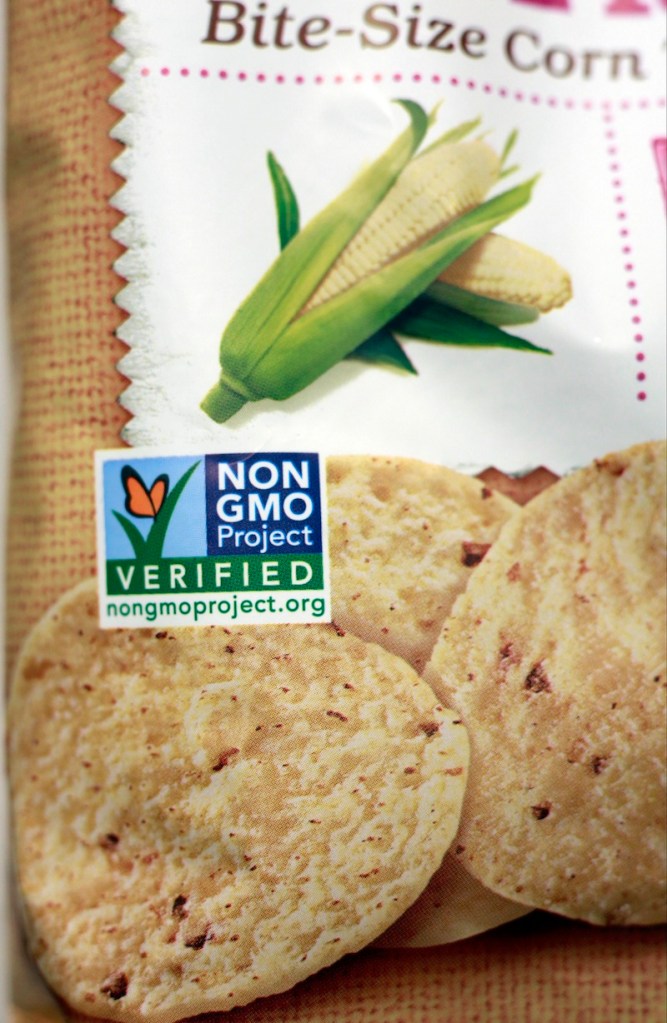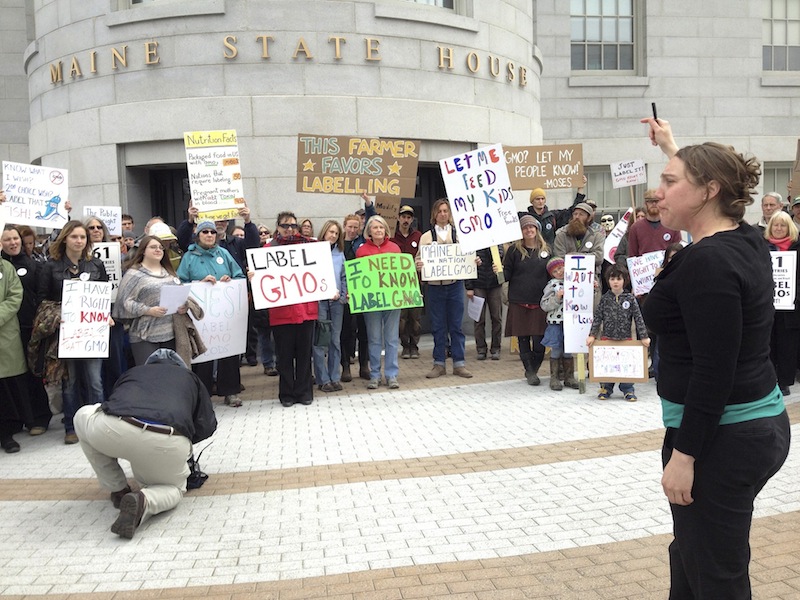AUGUSTA – The Legislature’s Agriculture Committee endorsed a bill Tuesday that would require food retailers to label products containing genetically modified seeds or ingredients.
The 8-4 vote moves Maine farther into a national debate over genetically modified food. It also moves Maine closer to tangling with agribusiness and biotech giants like Monsanto, which has threatened to sue other states that pass such labeling legislation.
A lawsuit may await Maine if the Legislature enacts L.D. 718, a bill sponsored by Rep. Lance Harvell, R-Farmington, and co-sponsored by 120 lawmakers, including Democrats, independents and libertarian Republicans.
Attorney General Janet Mills, who was asked to review the constitutionality of the bill, told lawmakers that it is “almost certain” to face a legal challenge from the industry. Mills did not guarantee that her office would be able to defend its constitutionality.
“These entities are very litigious,” Mills told the committee.
Proponents of the bill, including the Maine Organic Farmers & Gardeners Association, said it is up to states to take on industry to ensure that it discloses whether food is bioengineered – its DNA has been spliced with that of an unrelated plant, animal, bacterium or virus – because Congress has failed to enact federal legislation.
Harvell acknowledged that a lawsuit is likely if the bill passes. “You’re challenging a biotech industry that’s operated on the basis of throwing their weight around,” he said. “Somebody once said that Monsanto isn’t a seed company, it’s a law firm that makes seeds.”
No state has passed such a labeling law. At least 18 states are considering them, according to the National Conference of State Legislatures. On Monday, Vermont inched closer to enacting the nation’s first such labeling bill when its House of Representatives passed a measure similar to Maine’s.
Monsanto has already threatened to sue Vermont if the legislation passes.
Lance Dutson, a spokesman for the business and industry coalition that’s opposing the bill, said he was surprised that the committee endorsed the legislation after Mills delivered her remarks. He said Mills’ review essentially reaffirmed “serious constitutional concerns.”
The constitutional issue centers on free speech, specifically compelling food manufacturers and retailers to disclose ingredients that don’t pose a known public health risk.
The Maine State Chamber of Commerce, the Maine Farm Bureau and the Grocery Manufacturers Association say the bill would unfairly stigmatize genetically modified foods despite a dearth of scientific research proving that such products are any less healthful than those that are conventionally grown.
Dutson said, “For the state to compel a food producer to put something on their label that doesn’t serve any public health or nutrition issue, that seems very clearly to be a violation of the First Amendment.”
Maine law now allows retailers to voluntarily label products as certified organic or “GMO-free.”
Harvell’s bill would prohibit retailers from labeling a product “natural” if it contained GMOs, genetically modified organisms.
Advocates of new regulations say scientific evidence is emerging that genetically modified foods can increase health risks and food allergies. They say federal regulators have left testing up to the industry that is producing and profiting from genetically modified products.
The Food and Drug Administration regulates genetically modified foods but does not approve them. The agency assumes the foods are safe until confronted with evidence that they’re not.
Michael Hansen, a senior scientist with Consumers Union, has worked on labeling legislation in Congress. He told lawmakers during a public hearing on Maine’s bill that federal regulators have ceded review of genetically modified products to ensure that the industry – not the government – is legally liable if health problems surface.
Opponents say a labeling law would be costly to farmers and sellers, who would have to review affidavits to determine if the food they’re selling contains genetically modified ingredients.
The Legislature has previously rejected four GMO-labeling bills, but supporters say there is growing support for a law.
Earlier this year, the Whole Foods grocery chain told its suppliers that they have until 2018 to labelfoods containing genetically engineered ingredients.
In advocating for L.D. 718, the Maine Organic Farmers & Gardeners Association has enlisted one of the state’s top lobbying firms, Preti Flaherty.
The proposal endorsed by the Agriculture Committee on Tuesday is slightly different from the original bill. It would not take effect until five other states passed similar legislation. If that didn’t happen before 2018, the law would be repealed.
The proposal goes to the House of Representatives for its first floor vote.
Steve Mistler can be contacted at 620-7016 or at:
smistler@pressherald.com
Send questions/comments to the editors.




Comments are no longer available on this story